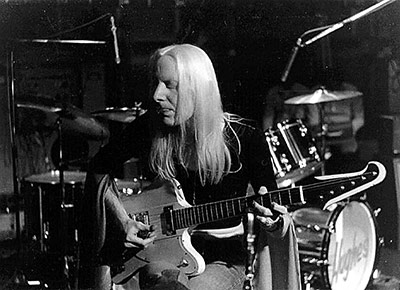With the possible exception of new Beatles' albums, the most eagerly awaited release in recent times has been the first Johnny Winters album for Columbia. A white albino blues guitarist and singer, he was `discovered' by the outstanding rock magazine Rolling Stone, flown to New York from his native Texas, and given such a hype that Columbia Records paid a reported $600,000 for him. Is he worth it? Ask the Columbia accountants in a few years. In the meantime, pick up "Johnny Winter" Columbia CS 9826), and hear what I feel is the greatest blues guitar on record.
This may seem like a generous statement, but as far as I am concerned his technique, imagination and feeling has no equal in blues music anywhere, white or black Unfortunately, his singing Is not up to his playing. He belts out songs in a raucous style which leaves no room for subtleties. A little of it is all right, but It does not wear well and I feel It detracts from his total effect. His basic group, called Winter, consists of himself, Tommy Shannon on Fender bass, and John Turner on percussion. On this album they have added a horn and vocal section to "I'll Drown In My Own Tears" and Shakey Horton on harp to "Mean Mistreater."
The album is composed of nine tracks which are a mixture of blues standards like the above and originals of Winter's. On two tracks he plays a National standard steel guitar to great affect. The overall feeling of the album is breathtaking. Until someone better comes along, and I cannot see that happening for quite awhile, I feel that jcfhrmy Winter is going to be the standard against which all blues guitarists are judged.
Source: 69-05-23 Van Nuys CA News


